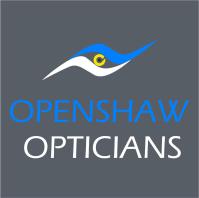At Openshaw Opticians, we prioritize your vision and comfort above all else. We make sure every customer knows what to expect during an eye examination, including explanations of any treatments or
procedures that may be necessary. With us, there's no rush through a 'quick eye test.' We allocate a 30-40 minute appointment slot for each eye examination, ensuring your optometrist conducts a
comprehensive and detailed assessment. Our goal is for you to relax and enjoy the Openshaw difference in customer care, with optometrists ready to address any questions or concerns, no matter how
much time it takes.
Our optometrists are equipped with state-of-the-art tools to thoroughly examine every aspect of your vision and overall eye health. We don't take shortcuts; we tailor eye examinations to your
individual needs. A careful review of your medical history is part of our detailed assessment. Here's what you can expect:
1. Symptoms and History
Each eye examination begins with a thorough review of your personal background. We'll inquire about:
1. Your medical history
2. Any previous eye issues you've encountered
3. Your family's eye health and medical history, including conditions like diabetes and high blood pressure
4. Your hobbies and interests
All this information helps us to understand what affects your sight and eye health on a daily basis and also gives us an insight into any potential eye
conditions you could have or are likely to develop.
1.Discussing your needs
It’s essential that your optometrist knows the reason why you are having your eyes checked. Perhaps you have a specific reason such as needing VDU screening, or maybe your eye examination is just
routine.If you’re having problems with your vision, your optometrist needs to know the symptoms you are experiencing, as well as information about how long you have had these symptoms and if these
have appeared gradually or suddenly. Knowing this information means your practitioner is able to tailor your eye examination to your needs.
2. Vision Check
A vision check will assess how well you can see and if you need glasses or contact lenses. Using the latest digital test chart, a combination of tests will be performed to assess your distance
vision. A near vision test will also be performed using the Snellen near point chart. This gives us an accurate measure of your eyes ability to read particular objects at a given reading or working
distance.
3. Eye Health Check
A Slit lamp is used to check the internal and external structure of your eyes and can detect diseases such as cataracts, glaucoma and macular degeneration. If needed, you may require an eye
pressure check and a visual field examination depending on your age and the symptoms you are presenting. A visual Fieldexamination will check for blind spots in your peripheral (vision from the
sides) vision and can detect serious health conditions such as glaucoma and retinal damage. The optometrist will also check the movement of your eyes to determine how well your eye muscles are
working. Finally, your colour vision may be checked using special colour vision plates.
4. Conclusions and Discussion
After your eye examination is over, we will discuss all results with you in detail. If any problems or changes in your vision have occurred, these will be carefully explained to you along with any
solutions and what your options are. Our optometrists will help you make the best decision on the basis of your preferences and your needs. After this, you will also be advised as to how frequently
you should your eyes tested.
At Openshaw opticians all our eye test appointments are 30-40 minutes for adults and 20 minutes for children, giving you a comprehensive eye examination.



